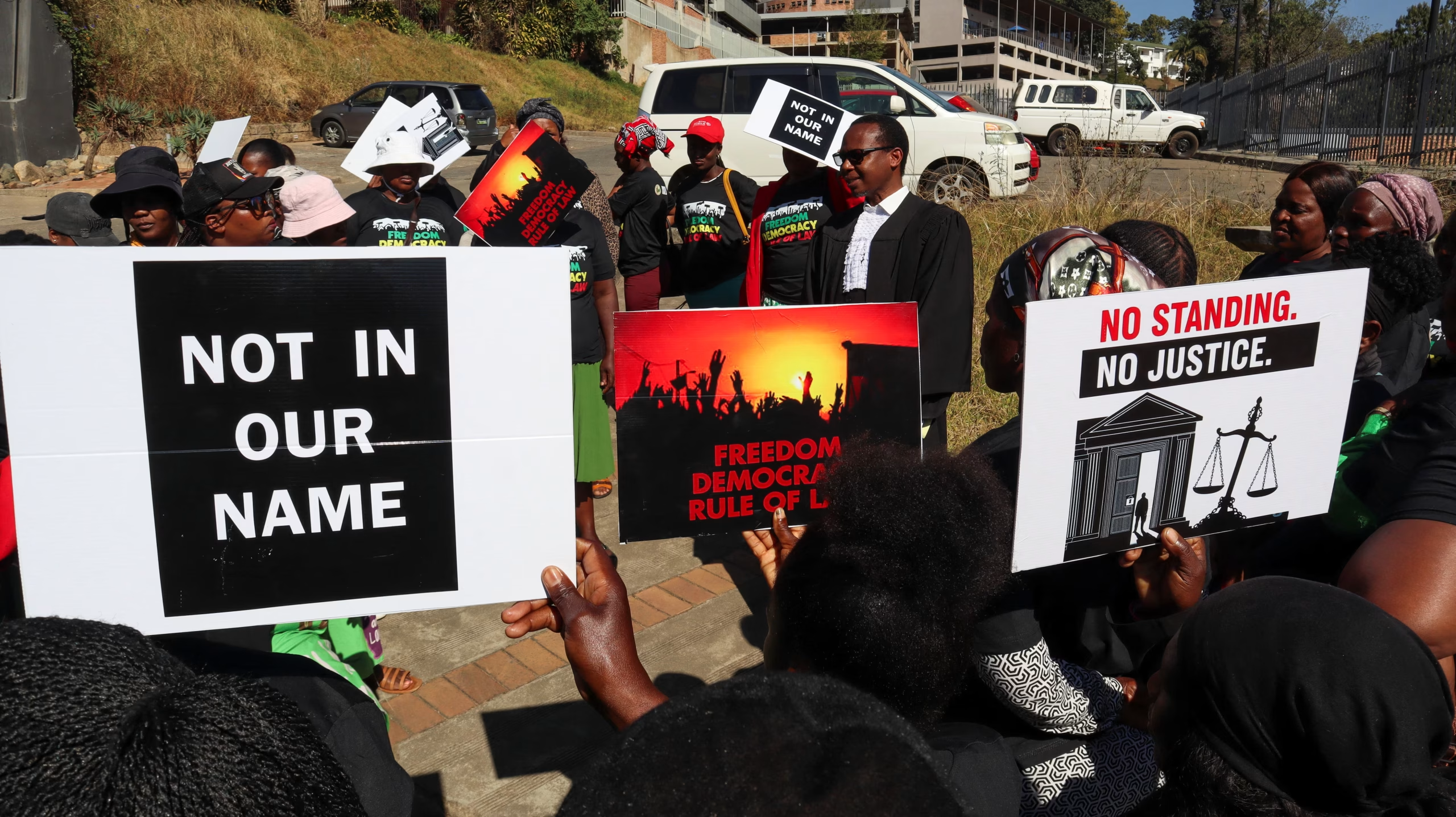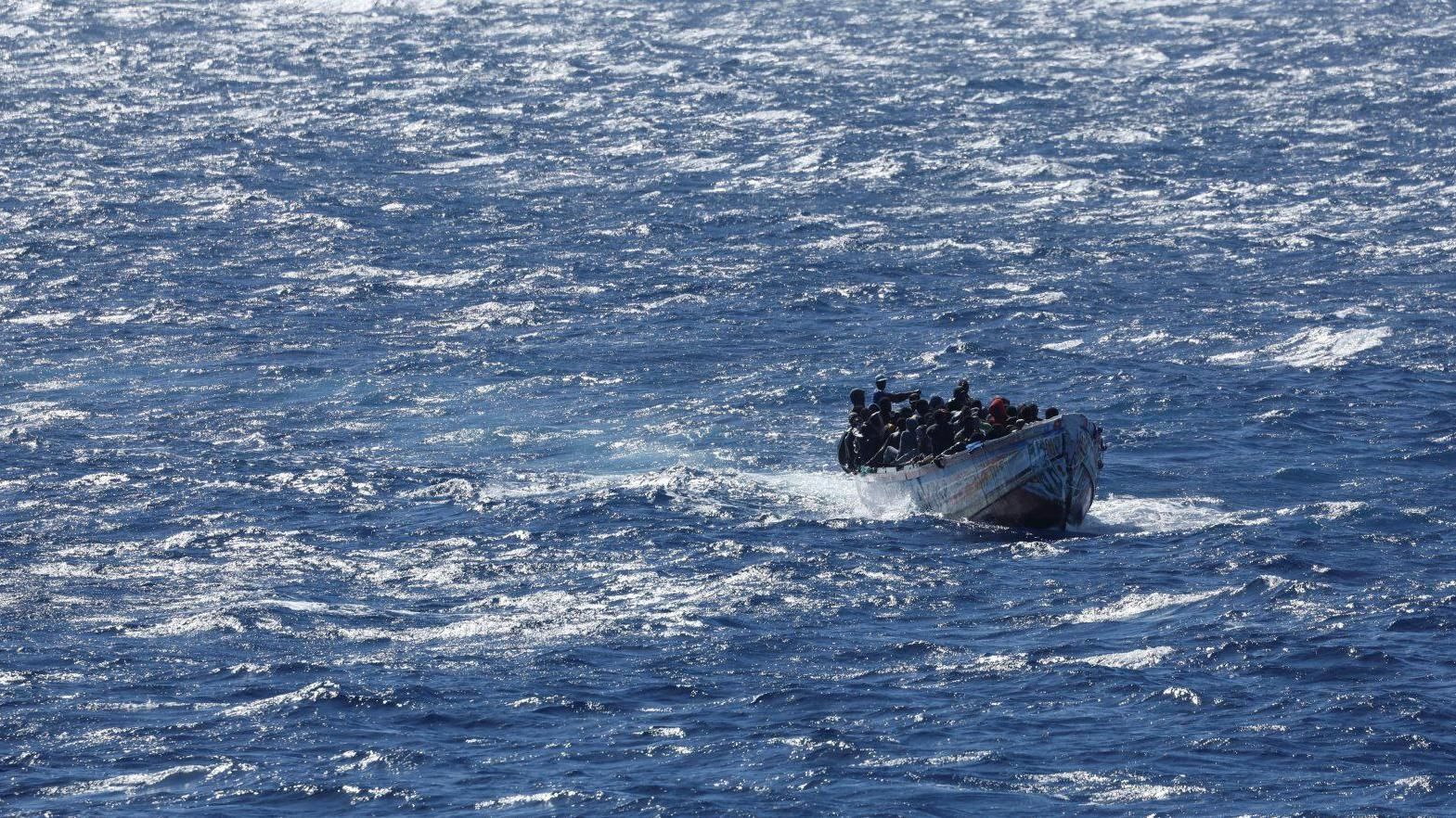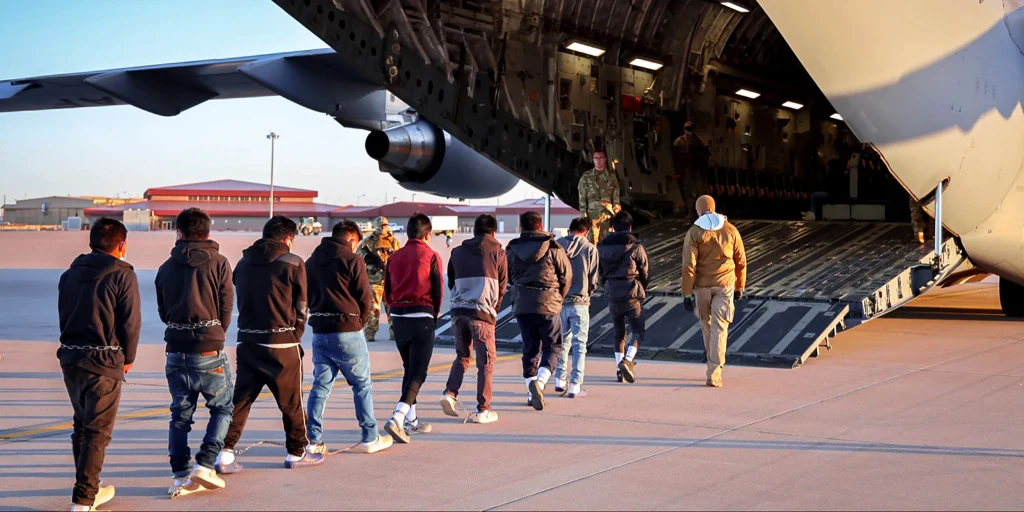The debate over immigration in the United States has taken another turn as lawyers representing several migrants deported to Eswatini challenge the legality of their detentions and removals. The case has drawn significant attention from human rights advocates, legal experts, and international observers who argue that the deportations raise troubling questions about U.S. immigration practices, due process, and the treatment of vulnerable individuals seeking refuge. With Eswatini facing its own political turbulence and allegations of human rights abuses, the decision to send individuals back to the country has triggered widespread criticism.
- The Background of Deportations to Eswatini
- Lawyers’ Arguments Against the Deportations
- The Role of U.S. Immigration Enforcement
- Human Rights Concerns in Eswatini
- The Broader Legal Implications
- Stories of Migrants Facing Deportation
- International Law and the Principle of Non-Refoulement
- Public and Political Reactions
- Possible Outcomes of the Legal Challenge
- FAQs
- Why are lawyers challenging deportations to Eswatini?
- What is the principle of non-refoulement?
- What are the human rights concerns in Eswatini?
- How are U.S. immigration authorities defending these deportations?
- What impact could the legal challenge have on U.S. immigration policy?
- Conclusion
At the heart of the matter lies the clash between U.S. immigration enforcement policies and the fundamental rights of individuals who claim they are being unlawfully detained and unfairly deported. Lawyers say these deportations not only violate domestic laws but also international human rights obligations that the United States has committed to uphold. As the legal battle unfolds, the case is forcing a broader conversation about how America manages deportations to nations with fragile political and human rights records.
The Background of Deportations to Eswatini
Eswatini, formerly known as Swaziland, is a small, landlocked kingdom in Southern Africa. Despite its size, it has drawn international scrutiny for political unrest, suppression of dissent, and allegations of human rights violations. The government, led by King Mswati III, has long been accused of stifling opposition and restricting freedom of speech. These concerns are central to why advocates argue that deporting migrants to Eswatini places them at risk.
In recent years, U.S. immigration authorities have deported individuals from Eswatini under policies designed to manage irregular migration and asylum cases. However, attorneys argue that many of those deported had legitimate claims to asylum or other forms of protection and that their cases were not given fair hearings. They claim that expedited removal processes, combined with lengthy detentions, have stripped individuals of the chance to defend their rights.
Lawyers’ Arguments Against the Deportations
Immigration lawyers leading the challenge contend that the deportations to Eswatini are unlawful on several grounds. First, they argue that the detentions preceding deportation violate constitutional protections against arbitrary imprisonment. In many cases, individuals were held for extended periods without timely hearings or adequate access to legal representation.
Second, lawyers point out that international law prohibits the return of individuals to countries where they may face persecution, violence, or human rights abuses—a principle known as “non-refoulement.” Given Eswatini’s track record of suppressing dissent and persecuting political opponents, attorneys argue that deporting migrants to the country directly contravenes this principle.
Finally, advocates highlight procedural irregularities. Reports indicate that some migrants were denied translators during hearings, lacked adequate legal counsel, or were rushed through the asylum process. Such shortcomings, they argue, undermine the very foundation of due process and justice.
The Role of U.S. Immigration Enforcement
The U.S. Department of Homeland Security (DHS) and Immigration and Customs Enforcement (ICE) maintain that deportations are carried out in accordance with the law. Officials argue that individuals subject to removal orders have exhausted their legal remedies and that enforcement is necessary to maintain the integrity of the immigration system.
Yet critics say the system disproportionately targets vulnerable individuals and lacks the flexibility needed to account for unique geopolitical realities in countries like Eswatini. The heavy reliance on detention as a tool of enforcement has also come under fire, with detainees often enduring poor conditions and prolonged uncertainty. According to advocacy groups, these practices amount to punishment for migrants whose only crime may be seeking safety or opportunity in the United States.
Human Rights Concerns in Eswatini
One of the most significant dimensions of this case is the human rights situation in Eswatini itself. International watchdogs, including Amnesty International and Human Rights Watch, have documented widespread suppression of political opposition, excessive use of force by security forces, and restrictions on freedom of assembly. Protests in recent years have been met with crackdowns, resulting in casualties and arbitrary arrests.
For deported individuals, returning to such an environment can mean immediate risk. Political dissidents, activists, or those perceived as critical of the monarchy may face harassment or worse. This is why human rights organizations have joined lawyers in condemning the deportations, framing them as not only unlawful but also life-threatening.
The Broader Legal Implications
The challenge against U.S. deportations to Eswatini could set a significant precedent in immigration law. If courts agree with lawyers that these removals are unlawful, it could open the door for challenges to deportations to other countries with poor human rights records. It may also force U.S. authorities to adopt stricter safeguards before carrying out removals, ensuring that individuals are not sent to dangerous situations.
Moreover, the case raises questions about the balance of power between the executive branch, which enforces immigration policy, and the judiciary, which safeguards constitutional rights. As courts weigh the arguments, the outcome could reshape the contours of U.S. deportation policy for years to come.
Stories of Migrants Facing Deportation
Behind the legal arguments are the personal stories of individuals whose lives hang in the balance. One migrant, who had fled Eswatini after participating in pro-democracy demonstrations, described being detained in the U.S. for months before abruptly being put on a deportation flight. He said he now fears for his life, having already faced threats from security forces back home.
Another case involves a young woman who sought asylum on the grounds of gender-based violence. Her lawyers argue that she was denied a fair chance to present her case and was instead placed in expedited removal proceedings. Such stories highlight the human toll of policies that prioritize efficiency over fairness.
International Law and the Principle of Non-Refoulement
Central to the legal battle is the international legal principle of non-refoulement, enshrined in the 1951 Refugee Convention and other treaties. This principle prohibits states from returning individuals to territories where they face threats to their life or freedom. The United States is a signatory to these conventions, yet critics argue that current deportation practices often fall short of meeting these obligations.
By deporting migrants to Eswatini despite evidence of systemic repression, attorneys say the U.S. risks violating not only international law but also its moral responsibility as a global leader in human rights. The challenge before the courts will test whether the U.S. is willing to live up to these commitments.
Public and Political Reactions
The deportations have sparked a wider debate in political and public circles. Immigrant rights groups have staged protests, demanding an end to deportations to unsafe countries. Some lawmakers have also expressed concern, urging the administration to review deportation policies in light of human rights conditions abroad.
However, others argue that the U.S. cannot compromise its immigration enforcement system and that allowing individuals to remain indefinitely undermines the rule of law. This tension reflects the broader divide in American politics, where immigration remains one of the most polarizing issues.
Possible Outcomes of the Legal Challenge
The courts could rule in several ways. A favorable ruling for the lawyers might result in halting deportations to Eswatini and potentially releasing some detainees from custody. This would mark a significant victory for immigrant rights advocates. On the other hand, if the courts side with the government, it could embolden immigration authorities to continue removals despite the risks posed by conditions in Eswatini.
Whatever the outcome, the case will likely influence future debates about the intersection of immigration enforcement and human rights. It could also shape how the United States is viewed on the global stage, particularly in terms of honoring its international obligations.
FAQs
Why are lawyers challenging deportations to Eswatini?
Lawyers argue that deportations to Eswatini are unlawful because they violate due process and international protections against sending individuals to countries where they may face persecution or human rights abuses.
What is the principle of non-refoulement?
Non-refoulement is an international legal principle that prohibits returning individuals to a country where they are likely to face threats to their life, freedom, or safety.
What are the human rights concerns in Eswatini?
Eswatini has faced international criticism for restricting political opposition, using excessive force against protesters, and limiting freedoms of speech and assembly. Deportees risk persecution upon return.
How are U.S. immigration authorities defending these deportations?
Authorities argue that deportations are carried out lawfully after individuals have exhausted their legal options, and that enforcement is necessary to uphold immigration laws.
What impact could the legal challenge have on U.S. immigration policy?
If successful, the challenge could set a precedent that restricts deportations to countries with poor human rights records and ensures greater protections for migrants.
Conclusion
The legal battle over U.S. deportations to Eswatini highlights the deep tensions between immigration enforcement, constitutional rights, and international human rights obligations. For lawyers and advocates, the fight is about more than legal technicalities—it is about protecting vulnerable individuals from persecution and ensuring that the United States lives up to its values.
As courts deliberate, the world is watching closely. The outcome will not only determine the fate of those deported to Eswatini but will also shape how America balances its immigration policies with its commitments to human rights. At stake is not only the future of these migrants but also the moral standing of the United States as a nation that upholds justice and dignity for all.













